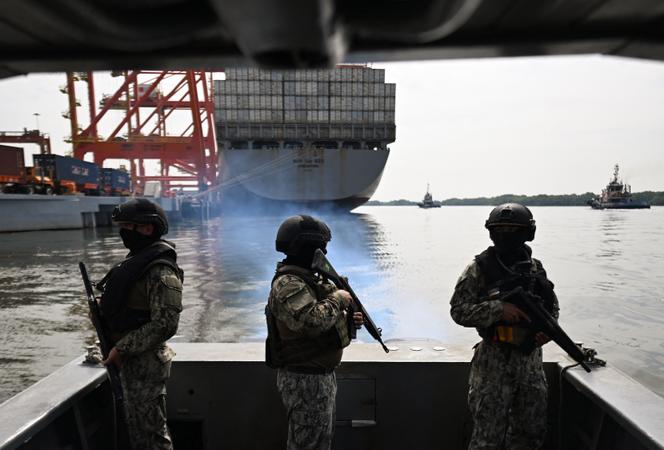


Under the watchful eye of the camera fixed to the ceiling of the hangar, the man closed the two doors of the white truck. He applied two seals, two GPS padlocks and three security tags. The vehicle, loaded with 960 cases of bananas, then set off for the port of Guayaquil, a two-hour drive from the La Margot estate in the province of Los Rios. Before departing that day, April 15, the truck driver made the sign of the cross; the heavy vehicles are occasionally attacked by gangs serving the mafia.
Nestled in the Northwest of the South American continent, the small country of Ecuador is the world's leading exporter of both bananas and cocaine. "Criminals force the locks, tear off the labels, 'contaminate' the cargo and then replace them with cloned locks and labels, perfectly identical," said the truck driver. In Ecuador, to "contaminate" means to introduce or to contain cocaine. The fruit can be contaminated, as can the cardboard boxes, wooden pallets, container walls or even the refrigeration systems. On the high seas, traffickers can even attach a submersible filled with cocaine to the cargo ship.
You have 85.73% of this article left to read. The rest is for subscribers only.
